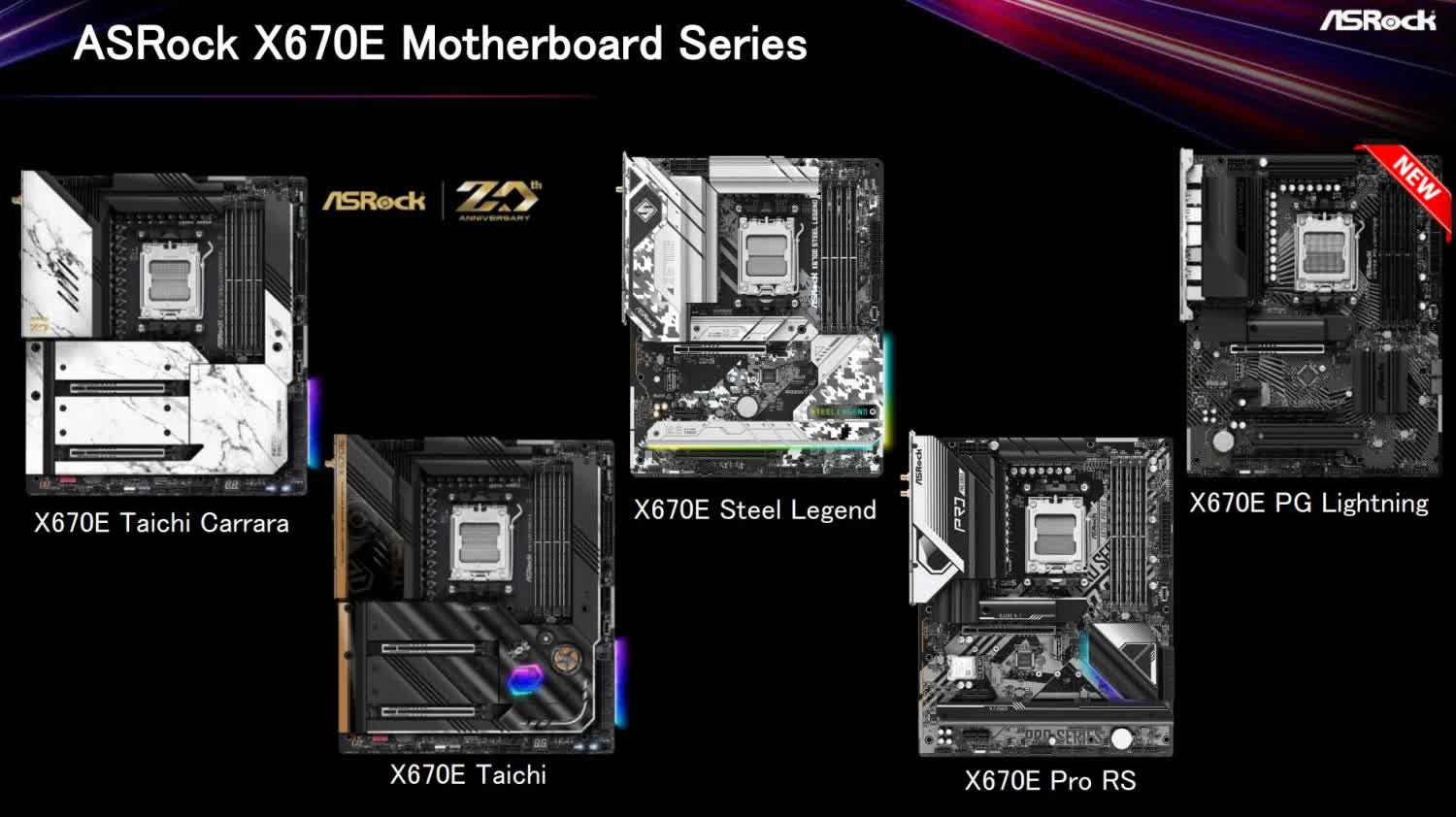Why it matters: Earlier this month, sources on Twitter identified a potential issue related to Asrock's new AM5 BIOS and boot times. Asrock's recently released x670 Steel Legend motherboard includes a table outlining several RAM configurations and their associated boot times. Fans and tech enthusiasts were taken aback by the length of those times, which could range from 100 to 400 seconds. Thankfully, a new BIOS and firmware update fixes the problem.

Twitter by user HXL initially pointed out the problem on September 1st. The post highlights a table attached to Asrock's x670 Steel Legend that described boot times based on the user's chosen DDR5 RAM configuration and capacity. The boot times ranged from 100 seconds in a 2x16GB configuration to upwards of 400 seconds with a 4x32GB configuration.
Fortunately, a September 8th press release claims the motherboard manufacturer has fixed the RAM-related issues and significantly decreased the required boot times.
The issue appeared to be related to the AM5 platform's RAM training sequence, which runs at the board's first boot cycle and any time a user clears the board's CMOS to reset the board's factory defaults. When a new (or recently reset) system boots, the installed RAM undergoes an initial power-up and initialization sequence.
Update: The new BIOS has been fixed☺️ https://t.co/AWYJllwUwM
--- HXL (@9550pro) September 1, 2022
Once complete, the system continues to a calibration phase known as read/write training. During this process, the system runs algorithms to align the DRAM clock and data strobe, determine appropriate read and write delays, prepare for ongoing data reads, and report any errors encountered during the sequence.
The training is critical to proper DRAM operation, as it enables the system to compensate for differences in the physical distance of each dual inline memory module (DIMM) from the processor. While small, the distance from each module to the CPU can significantly impact the clocks and data transferred from each DIMM location during both write and read operations. The difference in transmission time due to these small distances, if not corrected, can result in anything from degraded performance to complete system instability.
The issue does not appear widespread across all AM5 implementations and seems limited to Asrock's AM5 BIOS build. The AM5 from Asrock and boards from other vendors hit the shelves on or around Ryzen 7000's September 27th launch date.
https://www.techspot.com/news/95935-asrock-creates-new-am5-bios-resolve-previously-reported.html